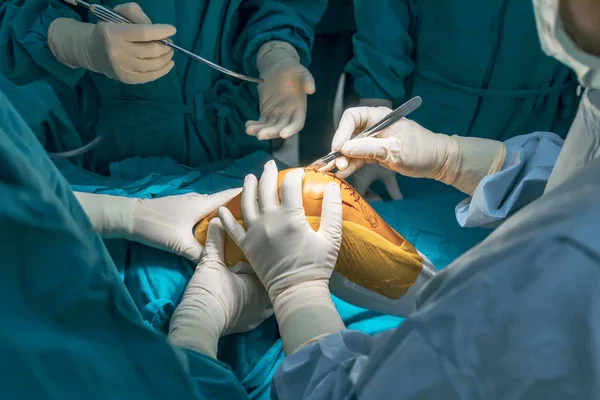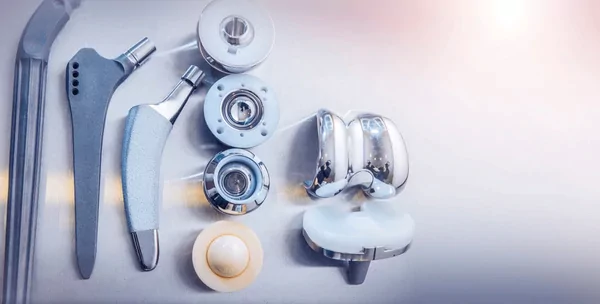Key Factors That Affect the Longevity of Joint Replacements
Joint replacement surgeries, such as knee and hip replacements, have transformed the lives of countless individuals suffering from debilitating joint conditions.
These procedures not only alleviate pain but also restore mobility and improve overall quality of life. However, like any medical procedure, the longevity of joint replacements is influenced by several factors.
Understanding these factors is crucial for patients looking to maximize the lifespan of their joint implants.
Dr. Reet Mukhopadhyay, a renowned joint replacement surgeon in Kolkata, has over 10 years of experience in knee and hip replacements, complex trauma, and pelvic surgeries.
With more than 3,000 successful procedures performed, Dr. Mukhopadhyay’s expertise ensures that patients receive the highest level of care, with a focus on maximizing the longevity of their joint replacements.

What is Joint Replacement Surgery?
Joint replacement surgery involves replacing a damaged or diseased joint with an artificial one, known as a prosthesis.
This procedure is commonly performed on the knee or hip to relieve pain and improve function in patients suffering from conditions like arthritis, fractures, or degenerative joint disease.
Knee and hip replacements are the most common types of joint replacements performed.
As a specialist in knee replacement in Kolkata and hip replacement surgery in Kolkata, Dr. Reet Mukhopadhyay utilizes the latest techniques and technology to ensure successful outcomes for his patients.
Why Joint Replacements are Necessary?
Joint replacements are often necessary when conservative treatments like medication or physical therapy fail to provide relief from chronic pain and limited mobility.
For many individuals, joint replacement surgery offers a long-term solution, significantly improving their quality of life by restoring the function and range of motion of the affected joint.
Factors That Affect the Longevity of Joint Replacements
- Patient’s Age and Activity Level
A patient’s age and level of physical activity play a significant role in the longevity of joint replacements. Younger patients typically have higher activity levels, which can increase wear and tear on the implant.
As a result, their joint replacements may need to be revised sooner than those in older patients who lead a more sedentary lifestyle.
However, it’s important to note that even older patients can benefit from joint replacement surgery, as the technology behind implants has advanced significantly, allowing for longer-lasting results.
Dr. Reet Mukhopadhyay carefully assesses each patient’s individual needs to determine the best approach to surgery.

- Surgical Technique and Expertise
The skill and experience of the surgeon performing the joint replacement are critical to the success and longevity of the procedure.
Dr. Reet Mukhopadhyay’s expertise in joint surgery in Kolkata ensures that every surgery is performed using the latest, minimally invasive techniques, which reduce the risk of complications and enhance recovery times.
Advanced surgical techniques, including precise implant positioning, are crucial for ensuring that the implant functions properly and lasts longer.
- Implant Material and Technology
The materials used in joint implants have a direct impact on their durability. Modern implants are made from high-quality materials such as ceramics, metals, and high-grade plastics, all of which are designed to withstand wear and tear over time.
Newer materials, such as ceramic-on-ceramic or ceramic-on-polyethylene, have shown promising results in extending the lifespan of implants.
Dr. Mukhopadhyay ensures that each patient receives the most appropriate implant material based on their age, activity level, and specific needs.
- Post-Surgery Rehabilitation
Post-surgery rehabilitation plays a vital role in ensuring the long-term success of joint replacements. Physical therapy is crucial for restoring strength and mobility to the joint, as well as for preventing stiffness and complications.
Dr. Mukhopadhyay works closely with patients to develop a tailored rehabilitation plan to help them recover fully and maintain the health of their new joint.
- Weight and Overall Health
Maintaining a healthy weight is essential for prolonging the lifespan of joint replacements, especially for weight-bearing joints like the knee and hip.
Excess weight places additional stress on the implant, increasing the risk of wear and loosening over time. Additionally, underlying health conditions such as diabetes or osteoporosis can negatively affect the longevity of joint replacements, as they can weaken bones or impair the body’s ability to heal.
By addressing weight management and overall health, patients can significantly improve the lifespan of their joint implants.
- Proper Care and Maintenance
Even after successful surgery and recovery, it’s important to care for your joint replacement to ensure its longevity.
This includes avoiding high-impact activities that could damage the implant, following a regular exercise routine to keep the joint strong, and seeking prompt medical attention if any issues arise.
Risks That Can Shorten the Lifespan of Joint Replacements
Infection and Complications
Infections are one of the leading causes of joint replacement failure. Even though the risk of infection is relatively low, it is still crucial to follow proper aftercare instructions, such as taking prescribed antibiotics and attending follow-up appointments with your surgeon.
Any signs of infection, such as redness, swelling, or pain around the implant site, should be reported to your doctor immediately.
Loosening and Wear Over Time
Over time, all implants may experience some degree of wear. Factors such as excessive activity, poor alignment, or age-related degeneration can lead to implant loosening.
Regular checkups with a skilled joint replacement surgeon in Kolkata can help detect early signs of loosening, allowing for timely intervention to prevent further complications.
How to Ensure Longevity of Joint Replacements?
- Regular Monitoring and Checkups
Even after a successful joint replacement, it’s important to maintain regular checkups with your joint replacement surgeon in Kolkata.
These appointments allow the surgeon to monitor the condition of the implant, assess for any signs of wear, and ensure that the joint is functioning properly.
- Maintaining a Healthy Lifestyle
Maintaining a healthy lifestyle is crucial for ensuring the longevity of joint replacements.
This includes eating a balanced diet, staying active, and avoiding high-impact activities that could cause damage to the implant.
By following a healthy lifestyle, patients can help prolong the lifespan of their joint implants and maintain overall health.
Conclusion
Joint replacement surgery offers life-changing benefits for those suffering from joint pain and mobility issues.
By understanding the factors that affect the longevity of joint replacements, patients can take proactive steps to ensure the success and durability of their implants.
Dr. Reet Mukhopadhyay, a highly experienced joint replacement surgeon in Kolkata, is dedicated to providing the best care to patients undergoing knee and hip replacement surgeries.
With his expertise and a personalized approach, you can look forward to a successful joint replacement surgery that will improve your quality of life for many years to come.
If you’re considering joint replacement surgery or want to learn more about your options, contact Dr. Reet Mukhopadhyay for a consultation today.


